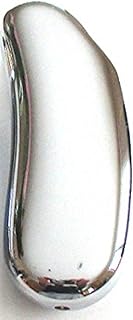BIC Lighters: An Environmental Impact Assessment
BIC lighters are a ubiquitous product, used by billions of people worldwide. While they provide convenience and affordability, their environmental impact is a growing concern. Here's a breakdown of the key areas of impact and potential solutions:
Production and Manufacturing:
* Fossil fuels: The production of plastic and butane, the primary components of BIC lighters, relies heavily on fossil fuels, contributing to greenhouse gas emissions and climate change.
* Resource depletion: Extraction of raw materials like plastic and butane puts strain on natural resources.
* Waste generation: Manufacturing processes generate significant waste, including plastic scraps and packaging.
Use and Disposal:
* Lighter fluid leaks: Improper disposal of lighters can result in leaks of butane, a flammable and harmful substance that contributes to air pollution.
* Landfill waste: Most disposable lighters end up in landfills, where they take centuries to decompose and release harmful chemicals into the environment.
* Fire hazards: Improperly discarded lighters can pose a fire risk, especially when they end up in places like forests or landfills.
Solutions and Mitigation:
* Sustainable materials: Transitioning to bio-based plastics and alternative fuels like renewable butane can reduce fossil fuel reliance and greenhouse gas emissions.
* Improved manufacturing processes: Optimizing manufacturing to reduce waste and implement recycling programs for plastic and metal components can minimize environmental footprint.
* Refillable lighters: Encouraging the use of refillable lighters significantly reduces plastic and butane waste.
* Proper disposal: Promoting responsible disposal methods like recycling programs or specialized collection bins for lighters can prevent pollution and fire hazards.
* Alternative ignition methods: Exploring and promoting alternative ignition methods like electric lighters or piezoelectric lighters can significantly reduce environmental impact.
Other Considerations:
* Social impacts: The production and disposal of lighters can have social impacts on workers and communities, especially in developing countries where manufacturing often takes place. Ensuring ethical sourcing and responsible production practices is crucial.
* Lifespan and Durability: BIC lighters are designed for single-use, leading to a high volume of disposable waste. Exploring strategies to increase the lifespan and durability of lighters can significantly reduce the environmental burden.
Overall, while BIC lighters offer convenience and affordability, their environmental impact is significant. By focusing on sustainable materials, improved manufacturing practices, responsible disposal, and exploring alternative ignition methods, we can mitigate the negative effects of these ubiquitous products and promote a more environmentally friendly future.
Further Research:
* Quantifying the carbon footprint of a BIC lighter throughout its lifecycle.
* Investigating the effectiveness of recycling programs for BIC lighters.
* Exploring the potential of bio-based plastic and renewable butane in lighter production.
* Assessing the environmental impact of alternative ignition methods.


